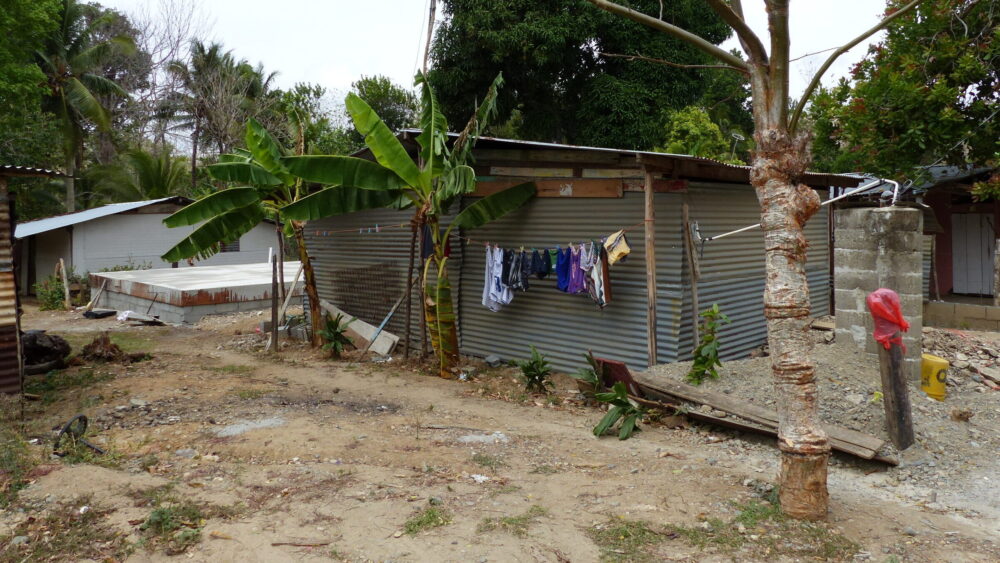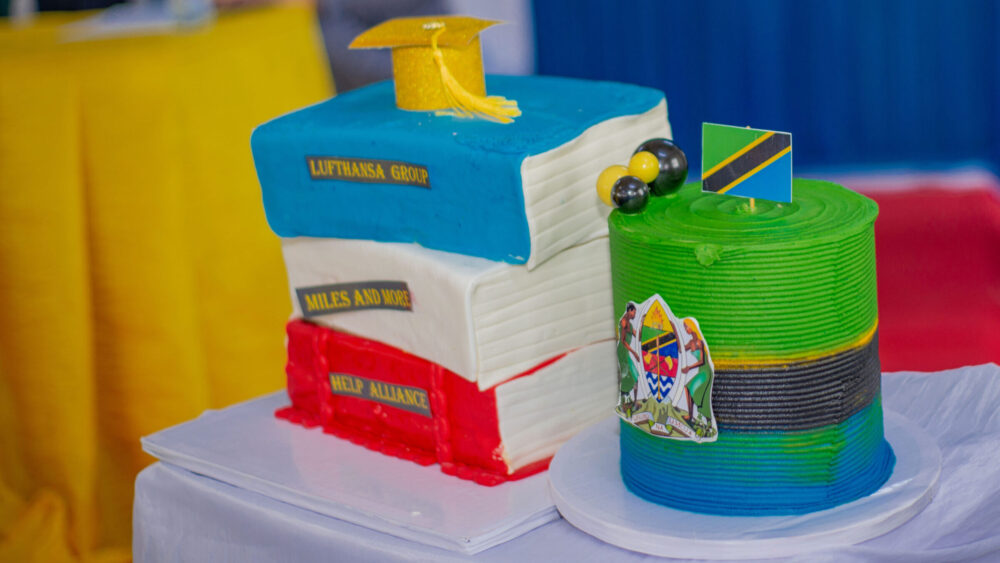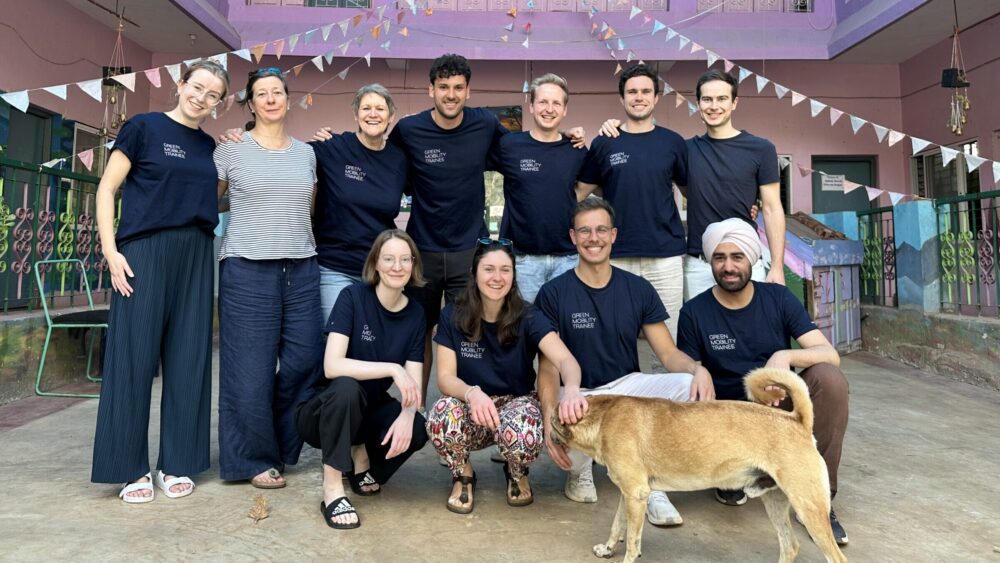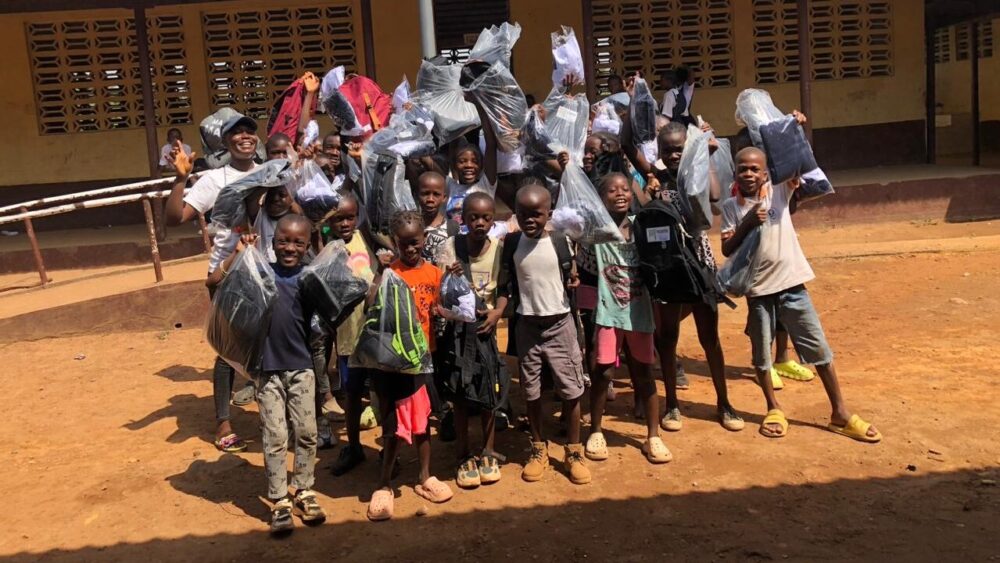
“Once you go through something like this, it never lets you go”
In conversation with Katja Müller
Katja Müller, Lufthanseatin in the HR department and project coordinator, talks about the project in Panama and what expectations she has of the project.
What do you do at Lufthansa?
I work in Talent Management. The last few years I was responsible for the key figures in Employer Branding, this includes KPI’s for the career site Be-Lufthansa and the applicant management tool, eJob. In the future I will be working in communications.
How did you come to help alliance?
I have seen or read something about the help alliance from time to time, especially in the News, but since I was already very busy with my private commitments, I was able to contribute a lot. Last year I had the idea to build a house for a poor family with my department in Mexico and that’s when I approached help alliance.
How did your department like the idea of building a house together?
My boss is open to everything. Her son has already visited a help alliance project in India, so she knew the work of the help alliance. I presented my idea in my department and was supported by Edith Lanfer from your project management. However, the timing was unfavorable for most of my colleagues and we postponed the date first and now the opportunity to build a house in Panama came up.
How did you come to the project?
2 years ago, my family and I volunteered for 4 weeks with a Christian organization in Mexico. There they presented us different projects including Homes of Hope. Two times we had the opportunity to participate in the construction of a house. In America it is often the case that companies send their employees and their families there so that they can build a house for poor people together. It was a great experience. It was also nice that there was an event in the evening where the experience could be processed and reflected. You stand in a small house and think to yourself “the whole house is as big as my living room”. My daughter asked surprisedly “where is the toilet”, because there were no toilets in the houses, which the families could perhaps add outside later.
Who will be involved in building the house?
Due to the Lufthansa Market Conference of the Americas, which is taking place at the same time, there are many colleagues on site who will be involved. That’s the great thing: everyone can help and make a difference.
Aren’t there problems if you don’t know anything about house building?
We cooperate with an organization that has already built over 5,000 houses. At least 2 construction managers and another 2-4 employees will always be there to support us with their expertise. Also you can’ t do so much wrong, it is not bad if a nail is not driven in properly. We get an instruction and if you are completely untalented, you can also help with painting.
What changes does a new house offer to the Cabezón Quintero family?
A big difference is that the house will be built on their land. No one can send them away – the insecurity is gone. The door with lock protects against unwanted visitors and the roof is tight. The finished house is also equipped with 2 bunk beds with mattresses, so the family does not have to sleep on the floor anymore.
What challenges or problems have you encountered so far in the planning?
That Germans usually want to know everything exactly and everything should be planned exactly. But here flexibility and openness is required.
Also the coordination is more difficult than expected, because we all don’t know each other and there are different volunteers on the 2 days. Normally 20 people build on 2 days
I can imagine that some of the participants in the unfamiliar surroundings have security concerns. But I am sure that at the end of the day everyone is very happy and grateful that they were there.
What expectations do you have of the house construction?
Great. I think it will be cool and exciting days for everyone who participates. Get to spend time with the family you never would have met otherwise. It will be very enriching for all the helpers. We will learn a lot about the culture and benefit from the life experience of the family. Once you take part in something like this, it never lets you go. One becomes aware that one belongs to the richest people in the world and inevitably asks oneself the question “what responsibility do I have?” It will also broaden many people’s understanding of poverty, the causes of poverty and the problems of getting out of poverty. I hope that many will continue to be socially involved afterwards.
What advice can you give to others who want to get involved in social work?
Start small. You can get involved everywhere and with the refugees we are very close. Just go with them and do what you enjoy, like baking cakes, playing football or getting into conversation over a cup of coffee.



